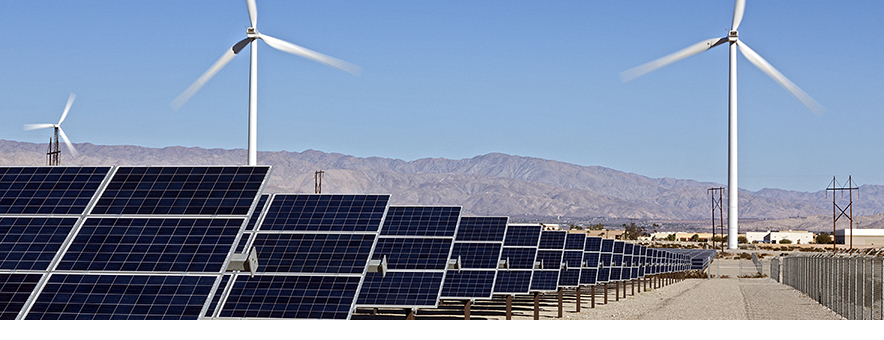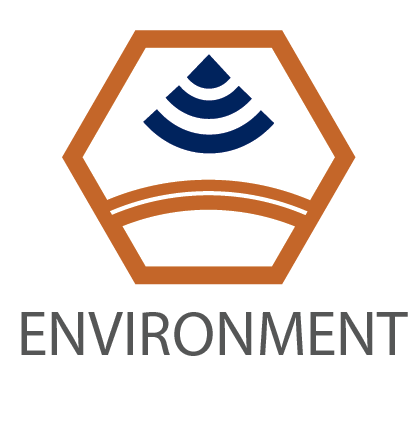
 Confronting climate change requires us to understand the nexus of industrialization, environmental science, and human health.
Confronting climate change requires us to understand the nexus of industrialization, environmental science, and human health.
By combining ground monitoring with remote sensing data, PDEL researchers are providing innovative ways of measuring these processes in real time, with comprehensive geographical coverage.
Current Projects
Monitoring and Managing Food, Energy, and Water Systems Under Stress: The California Crucible
Researchers: Jennifer Burney (GPS), Steven Davis (UC Irvine), Amir AghaKouchak (UC Irvine), Jack Brouwer (UC Irvine), Frances Moore (UC Davis)
Location: California
California's food, energy, and water systems (FEWS) are interdependent and increasingly stressed by growth in resource demands, environmental policies, and severe and persistent drought. Integrating methods from geosciences, engineering, and economics, the team is modeling system interactions at a level of detail that will advance our understanding and help to inform future decisions on resource management in California and elsewhere.
Climate Change and Human Health in the Developing World
Researchers: Teevrat Garg (GPS) and Maulik Jaganani (Cornell)
Location: Global
There are several channels through which climate stressors impact human health and productivity, including heat-induced mortality, infectious diseases such as malaria, and malnutrition due to crop failures. The research team plans to construct a comprehensive global data set on disease and health outcomes and expenditures, geo-linked with climate, pollution, and night lights data. They will then be able to address questions such as how vulnerability to the disease effects of weather and climate vary by income.
Temperature and Creativity: Evidence from Computer Science Students in India
Researchers: Elizabeth Lyons (GPS), Teevrat Garg (GPS), and Maulik Jagnani (Cornell)
Location: India
The project examines the effects of extreme temperatures in the short- and long-run on productivity in creative tasks through a series of field experiments in computer skill development centers in the Indian cities of Mumbai, Bengaluru, and New Delhi.
The Effect of Pollution on Worker Productivity, Economic Preferences, and Strategic Behavior
Researchers: Joshua Graff Zivin (GPS) and Piotr Evdokimov (Instituto Tecnológico Autónomo de México)
Location: Mexico and the United States
Recent findings demonstrate that exposure to higher levels of ozone and PM2.5 is associated with decreases in the productivity of low-skilled workers in an outdoor (agriculture) and an indoor (factory) setting, respectively. The researchers will extend this work through field experiments that examine the direct effect from exposure to PM2.5 on elements of economic preferences and strategic behavior affecting a wide range of economically relevant choices, as well as task performance on routine activities that are commonplace in high-skilled industries.
Past Projects
Pollution Exposure and Human Capital Formation
Researchers: Prashant Bharadwaj (UC San Diego), Joshua Graff Zivin (UC San Diego), Matthew Gibson, and Christopher Neilson
Locations: United States and Chile
A growing number of studies in public health and economics highlight the important role played by prenatal and early childhood health in the process of human capital formation. This study merged data from the Chilean ministries of health and education with pollution and meteorological data to assess the impact of fetal exposure to carbon monoxide air pollution on outcomes later in life.
Mapping Ozone Concentrations Via Remote Sensing and ICT Ground Verification
Researchers: Jennifer Burney (GPS) and Joshua Graff Zivin (GPS)
Location: United States
This project creates time-resolved maps of ozone and aerosol (particulate) exposure for the continental United States to use in agriculture and health short-lived climate pollutant impact assessments.
An Integrated Carbon Offset Protocol for Improved Biomass Cookstoves
Researchers: Jennifer Burney (GPS), Veerabhadran Ramanathan (UC San Diego), George Tynan (UC San Diego)
Location: United States
This study conducts the first set of experiments that will rigorously quantify the emissions from biomass-burning stoves in order to establish an integrated (carbon dioxide plus black carbon) offset protocol for use of improved biomass cookstoves. Emission inventories will be made available to the public for use in future climate studies.
Bias and Error in Econometric Analyses Using Spatial Data
Researcher: Jennifer Burney (GPS)
Location: United States
This empirical work will provide social science researchers with actionable tools and guidance on using high-resolution spatial data in their work.
Using Satellite Observations to Validate China's Output Data
Researchers: Junjie Zhang, Stephen Morris (Bowdoin College), and Qiang Zhang (Tsinghua University)
Location: China
Chinese statistical data has long been cast under suspicion. One of the most crucial macroeconomic figures subject to manipulation is output; it is frequently over reported for provincial officials’ career advancement. This project utilizes a novel source of energy consumption information to assess the validity of Chinese output data.
Using Remote Sensing Technology to Improve Environmental Governance in Developing Countries
Researcher: Junjie Zhang
Location: United States and China
This project develops new methods to estimate air pollution levels in developing countries, incorporating ground-based measurements of particulate matter with satellite data.
Faculty
Prashant Bharadwaj
Department of Economics
Piotr Evdokimov
Instituto Tecnológico Autónomo de México (ITAM)
Teevrat Garg
GPS
Maulik Jagnani
Cornell
Albert Lin
Qualcomm Institute
Junjie Zhang
GPS

